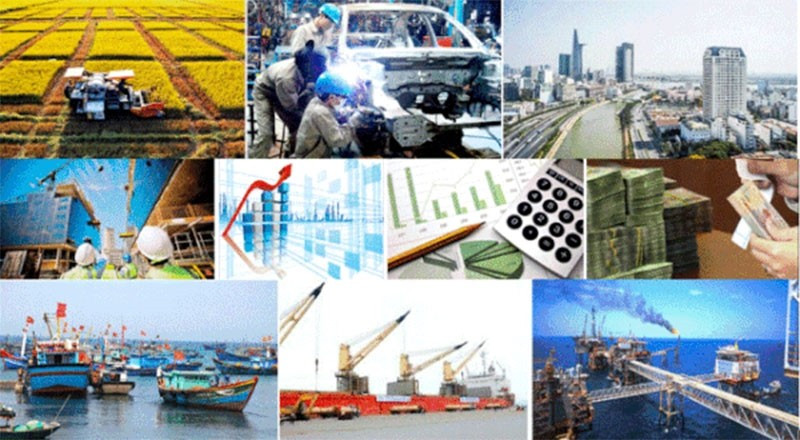In the proposal, the Government suggests that the National Assembly adjust the target GDP growth rate to 8% or higher, instead of the previously approved range of 6.5-7%, with an ambitious goal of 7-7.5% set during the 8th session in November 2024. Achieving this growth rate in 2025 will lay a solid foundation for sustained double-digit growth starting from 2026.
To drive economic growth, from the very beginning of 2025, the Standing Government has engaged with businesses to discuss solutions for accelerating private sector development, enabling breakthroughs, and contributing to the country's rapid and sustainable progress in the new era. This event is a motivational boost for the business community and a strong demonstration of the Party, State, and Government’s trust in Vietnamese enterprises, as they take on a crucial role in the country’s historic transformation.
After nearly 40 years of renewal, Vietnam’s business community has grown significantly in scale and quality. The country now has over 940,000 active enterprises, over 30,000 cooperatives, and over five million individual business households. Enterprises play an increasingly vital role in socio-economic development, industrialisation, and modernisation, contributing approximately 60% of GDP growth, 98% of total export turnover, and providing jobs for 85% of the national workforce. Some Vietnamese businesses have expanded regionally and globally, actively integrating into global supply chains and affirming their position in the international market, enhancing Vietnam’s prestige and influence in the international arena.
Despite notable progress, Vietnamese enterprises still face many limitations, and their development potential remains underutilised. While some private corporations have grown to multibillion-dollar enterprises with global competitiveness, the majority of businesses remain small or micro-sized, with weak competitiveness and short-term, seasonal business strategies lacking long-term vision. Notably, the growth momentum of Vietnamese enterprises has slowed since the COVID-19 pandemic.
Before 2019, the ratio of newly established businesses to those exiting the market was typically three times, however, by 2024, this ratio had dropped to just 1.18 times. Additionally, the number of newly registered businesses and those resuming operations has fallen below businesses temporarily suspending operations or going bankrupt. This indicates that while the business environment has improved, it has not yet fully met the development needs of enterprises or the broader economy.
In reality, legal and policy frameworks focus primarily on regulation and oversight rather than fostering business growth. This has resulted in overlapping legal provisions that create obstacles in implementation. The most significant legal bottlenecks are concentrated in two areas: the mobilisation, allocation, and utilisation of resources, and industry-specific regulations—particularly in sectors with conditional business requirements. These are the key issues that businesses and entrepreneurs consistently urge the Government and the Prime Minister to address whenever they engage in discussions.
As global uncertainties continue to unfold unpredictably, strengthening internal capacity to drive growth has become an urgent requirement. Without fostering the development of the business and production community, achieving growth targets will be difficult and unsustainable. Institutional reforms, alongside a streamlined administrative revolution, are expected to break down regulatory barriers, unlock investment resources, and stimulate growth momentum from the business sector.
Institutional reform cannot be separated from the development of the business community, especially domestic private enterprises. Businesses need the right motivation to break through limitations, and only institutional reforms can provide this. When entrepreneurial spirit is reinvigorated, businesses will take on the major challenges facing national development and become key players in achieving double-digit economic growth. In the current context, entrepreneurs and businesses are the true drivers of national revitalisation, playing a crucial role in ensuring prosperity and happiness for the people.
















